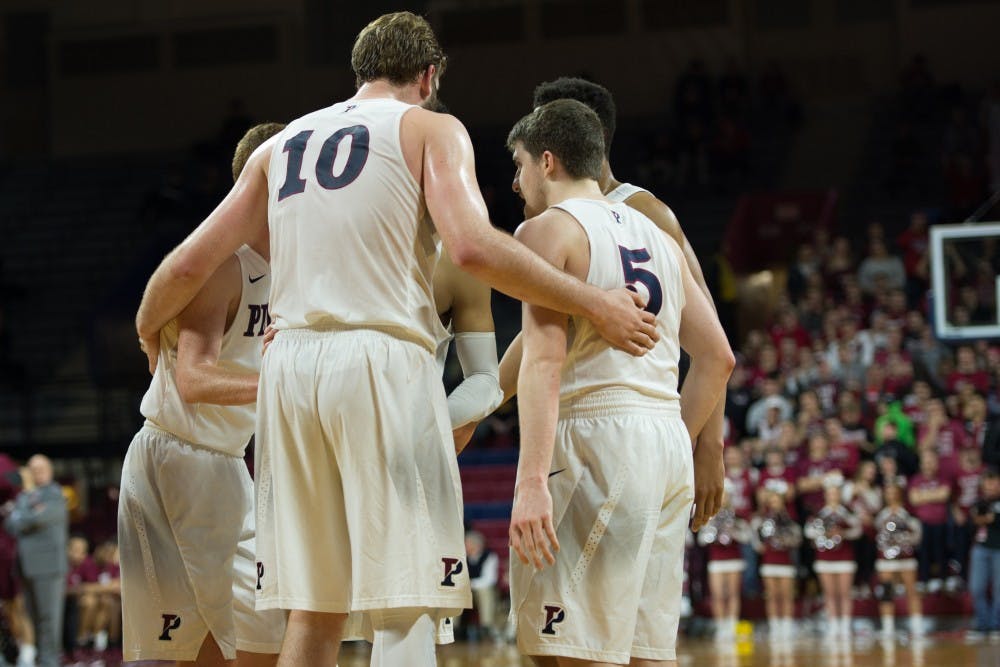
When you see the word “leader,” what comes to mind? Perhaps it is a historical figure, maybe it is an innovator in the tech industry. It could be a family member that you look up to. Or it might be Tom Brady dressed as a gladiator riding a lion.
More fascinating than which someone might come to mind for each individual person is how many someones might come to mind. Leadership takes countless different forms and everyone responds to a different type of leadership. Whatever form that leadership takes, though, it is something we as a culture value very highly.
I don’t have statistics on the subject, but I would bet a vast majority of athletes at Penn were captains of their high school teams, the best player on their high school team, or both. This presents a challenge to athletes at Penn, and similar institutions: How do you have a cohesive team when everyone on the team is used to being a leader?
I don’t remember when it was exactly, but at some point in my life, I decided being a leader was going to be very important to me. I was the captain of my high school team and tried desperately to get my team motivated and excited about playing and winning, rather than just “being on the football team.”
Stepping onto Franklin Field for the first time certainly made me nervous about whether or not I could play with the competition, but really made me panic about how I was going to distinguish myself as a leader on the team. My area of expertise — the motivation, the intensity, and the vocal leadership — had upperclassman in those roles already.
In high school, I, as I would expect most athletes here were, was expected to constantly step up. Play has to be made? I have to make it. Teammates are moping on the sidelines after a turnover? I have to get them fired back up. Teammates don’t want work in the weight room after school in the offseason? I have to get them in there.
In my experience, however, even as an underclassman, I was able to grow as a leader. Specifically, I was able to develop the softer, more subtle side of leadership. An oft-referenced cliche says that leadership is essentially being able to strike the right balance between “stepping up” and “stepping back,” and not being the go-to guy allowed me to learn how to step back.
Here, I have found that leadership that is so overt and forceful is often not needed. That is not to say there is never a place for the pregame speech, but everyone on the team is there for the same reason: because they love the game the play and because they want to win.
Penn brings together all these elite student-athletes into one place and gives them a common goal; a purpose for which they came to Penn — other than, obviously, the world class education, cheesesteak, taking pictures with the Rocky statues, and writing DP columns with overused Philly jokes. This space enables them to learn about leadership from peers in a collaborative, but structured environment for teams to develop diverse leadership styles for different situations.
There is not only value in the quality of leadership, but value in adapting those leadership skills to different situations and needs. So how do we learn to be adaptable?
Look around you. Not just in athletics, but all over the school, from top to bottom, there are leaders everywhere who have grown into their style based on their experiences.
Once you’ve looked, do the most important thing: listen. What drives this person? How do they see the world? How do they see their place in the world? You don’t need to ask these questions explicitly either — how they treat others, how they communicate their ideas and how adversity changes their attitude can give plenty of insights to these traits if you’re looking and listening.
I have been incredibly fortunate in my time here to have tremendous captains, coaches, and teammates that have taught me how to deal with different situations and different groups, but most of all, they’ve taught me that leadership is hardly ever one-size-fits-all.
The Daily Pennsylvanian is an independent, student-run newspaper. Please consider making a donation to support the coverage that shapes the University. Your generosity ensures a future of strong journalism at Penn.
DonatePlease note All comments are eligible for publication in The Daily Pennsylvanian.




